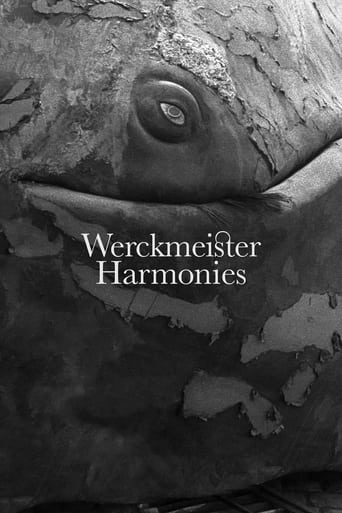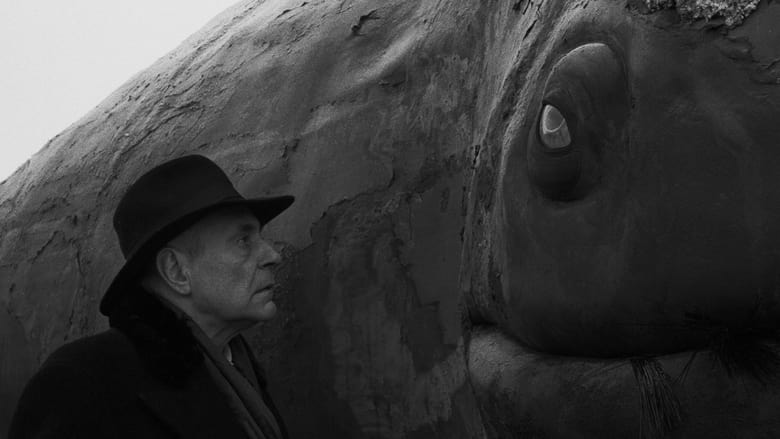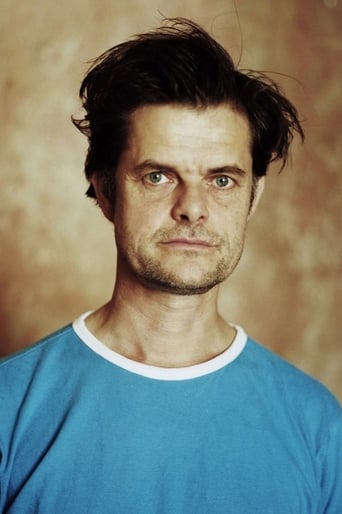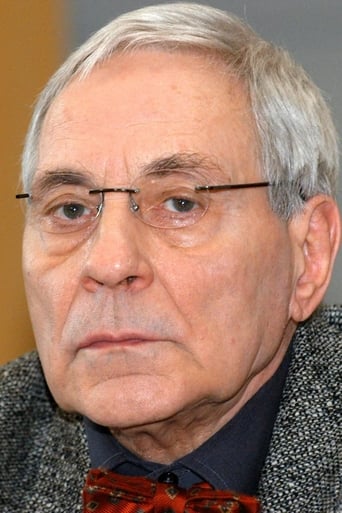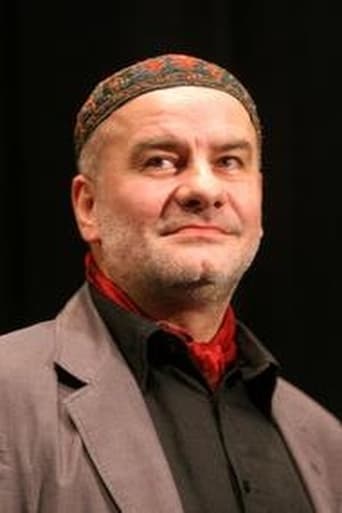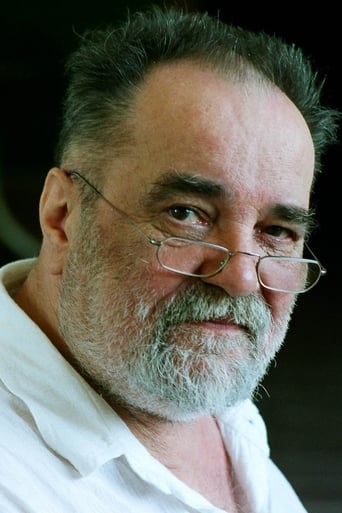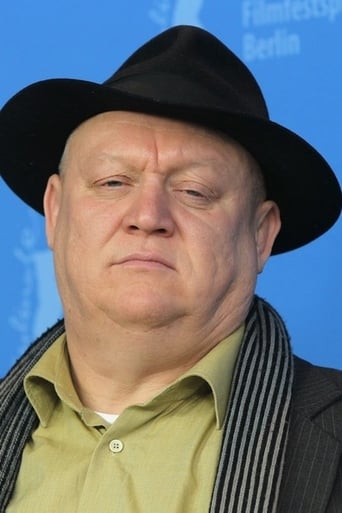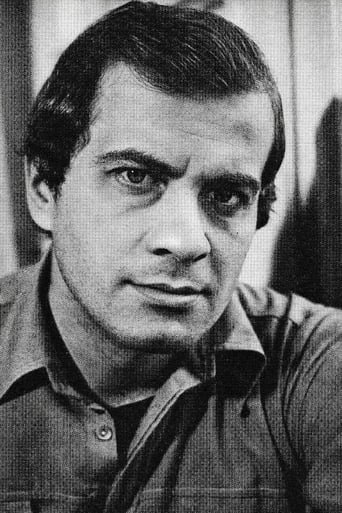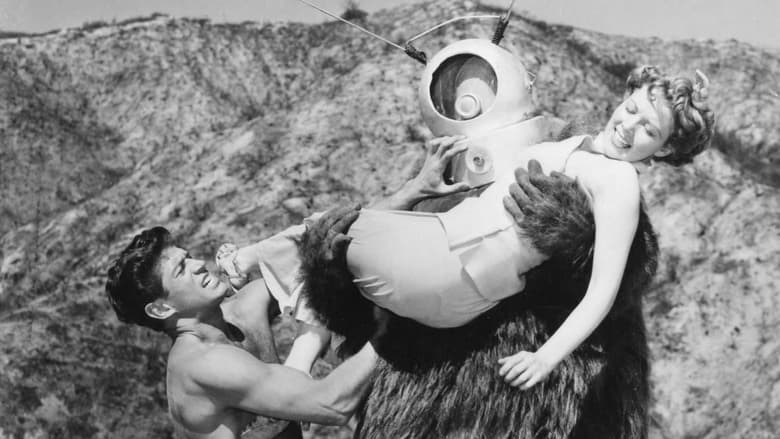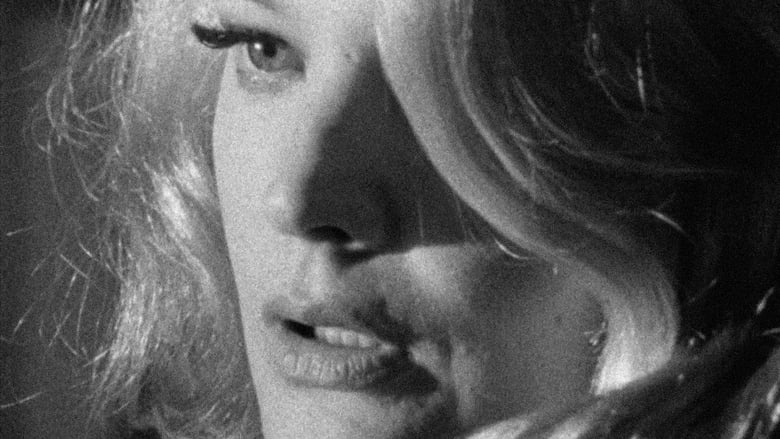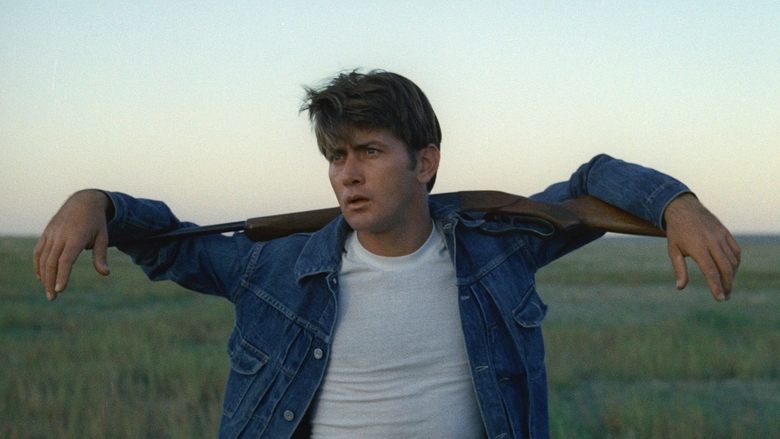A mysterious circus excites a small Hungarian town into a rebellion when a promised act doesn't perform.


Similar titles
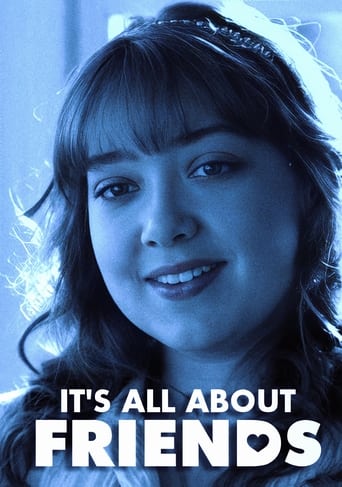
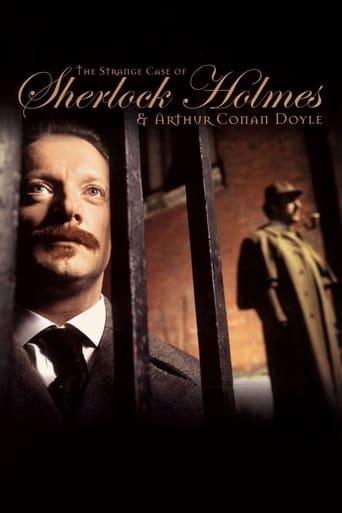

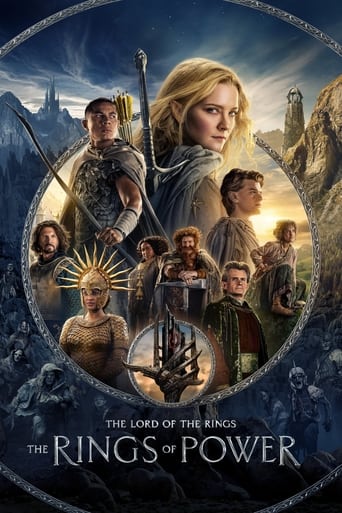

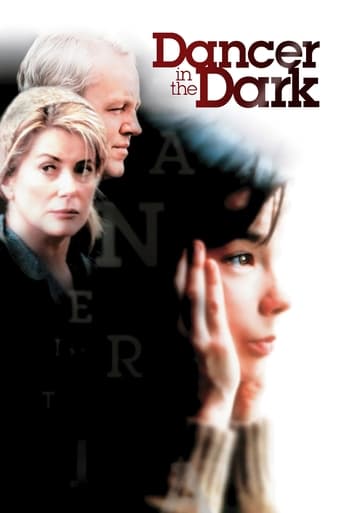

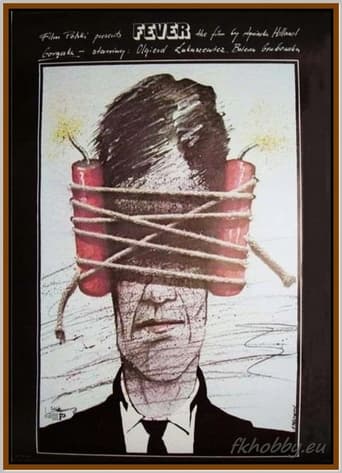
Reviews
"The Shadow knows." Let me first point out that this modern B&W film is not for everybody. The slowly developing plot is conveyed through a series of lengthy takes. People are often seen standing motionless or performing mundane tasks, such as reading and eating bland meals. Most action scenes are nothing more than various perspectives of people walking, marching or running in silence. And, it is not until halfway through the film before the story actually becomes compelling. Events reach a frightening climax when a mob of angry citizens ransacks a hospital. However, the viewer must come to his/her own understanding of how or why the tragedy occurred.As for my interpretation, the film represents the Soviet takeover of Hungary during the post WWII era. It insinuates that the Soviets deliberately provoked social unrest so as to provide a justifiable context for a military takeover. Those who naively cooperated with the Soviets became puppets. Others who opposed the Soviets were either killed or ostracized. The big 'fish out of water' represents the elite members of society, who were rendered utterly powerless and useless.The story centers around János Valuska, who may reflect Béla Tarr's own misplaced youth. Undaunted by the solar eclipse that will soon overshadow the whole community, the artistically inspired János directs and narrates a performance for a motley crew of intoxicated misfits in a local bar. Trustworthy, caring and respectful, János enjoys a modest yet peaceful existence with his close knit, extended family. Uncle György is another idealist, living in the abstract world of his own musical imagination. Unlike his outgoing nephew, however, György is a reclusive reactionary. A respected pianist, György believes that music has somehow been corrupted by his predecessor, Andreas Werckmeister.A new exhibit has arrived in town, featuring a great whale and a foreign prince. Apparently, this public demonstration has already caused much commotion in neighboring towns, and once again trouble appears to be brewing. Aunt Tünde tries to organize a committee to restore order. György wants nothing to do with this 'media circus', but in order to avoid confronting his wife directly, he reluctantly agrees to be the chairman. János goes to see the whale and eventually realizes that the exhibit is indeed a diabolical threat to the community, but he still does not understand how or why. And, when all the smoke and debris has finally settled, he is left even more clueless than he had been to start.
A small town. A drunk room; a rather dreary bar with two big lights hanging from the ceiling. Village simpletons falling all over the floor with an overdose of drinks. "You tubs of beer"..the bartender calls them! At closing time, a wide-eyed, gaunt, but seemingly popular young man walks in. He is Janos Valuska (Lars Rudolph). He uses the drunks at the bar as props and demonstrates the Solar Eclipse and the effects of this phenomenon on the behavior of the mortal beings of the earth. The scene lasts for the first 10-12 minutes and ends with a melancholic, haunting score by Mihaly Vig. This single scene is so beautiful, it sets the tone for what's to come.There is a shroud of ambiguity over Hungarian filmmaker Bela Tarr's "Werckmeister Harmonies" (co-directed by Ágnes Hranitzky). There is communication that is very vague. Things are spoken about something bad that happened before and something terrible that's perhaps about to happen. And in some towns, they say it has already begun. Is it the advent of the apocalypse? At the center of this mystery is a stuffed giant whale, a part of a "circus" that has arrived in town. This circus also features the enigmatic "Prince". With the coming of the whale and the Prince there is suddenly a 'lack of harmony' within the quietude of the town. Foreigners have started encroaching. There are stories that they have started rioting and looting. The whale is perhaps the reason. Most people seem to regard the whale as an abomination. Only Janos sees it as a bounty of nature, a miracle of God...Janos is clearly an optimist. Or is it the Prince who is behind all the turbulence? There are all kinds of stories. The dead whale and the Prince are somehow responsible for creating ripples in the otherwise still waters of the quiet little town. They have already spread their wings on other parts of the country. But are all these just urban legends? One of the main characters, György Eszter (Peter Fitz), speaks about how the musical intervals and harmonies as we know them over the centuries are "false" and the result of a huge scandal brought about by a certain Andreas Werckmeister. The title alludes to the harmonies or lack thereof owing to some funny business brought about by Werckmeister as a result of an "unhinged arrogance" that wished to take possession of the natural harmonies of the Gods! This one scene and the philosophy within has a strong connection with the overall theme of the film...lack of harmony and how it is brought about! Eszter's former wife Aunt Tunde (Hanna Schygulla) has an agenda of her own...she is out to initiate a "clean town" project with the help of her current lover, the Police Chief, for which she needs her former husband's help. "Our Janos" (as he is referred to by all townsfolk who like him) is entrusted the task of convincing Eszter to use his command and popularity to get support of the movement. Eszter reluctantly agrees. "I've paid for it and I may pay for it all my life", he says. But what exactly? Tarr doesn't think that is important. We never get to know. He clearly loves ambiguity.Tarr also loves extremely long takes, stark Black and White cinematography (beautiful at that), a somber mood, melancholic score, a languorous pace, bleak imagery and an overall sense of doom and despair. There are long philosophical monologues which are almost poetic and need to be heard at least twice to grasp. There is a distinct "meditative" feel to the proceedings. It is not difficult to spot the heavy Andrei Tarkovsky influence here, just as in other films of his. But Tarr's pictures are less abstract than those of the great Russian filmmaker. "Werckmeister Harmonies" is mostly materialism heavy but there certainly is some symbolism embedded in the narrative. The "Prince" who travels with the whale, for example, is a mysterious faceless creature who seems to have immense powers. A clock that was dead for years started ticking again as he went past! And he apparently also incites rioting. He doesn't believe in any greater power or authority either. Is he then the "Prince of darkness" with a thirst for destruction? Tarr demonstrates his ability to create a powerful impact through the marriage of visuals and sound. On one hand there is the scene in which Vig's soulful music accompanies, like Janos appreciating the whale and being awestruck by its enormity. And then there is the scene in a newspaper factory. Long monologues and ambient sounds serve as a background to Janos' mundane activities being filmed, and later the camera slowly pans to the person delivering the monologue! Then, of the several long tracking shots, a particular shot of Janos and Eszter walking adjacent to each other in an almost synchronized march of their feet (with only the sound of their feet and a lunch box providing the sound...carrying on for a good 2-3 minutes!) can't help but bring a smile on your face. Apparently, for one other scene, in which a lot of people are marching together to reach a destination, Tarr was asked why the scene is that long. Tarr simply answered "that's how long it took to get there!" "Werckmeister Harmonies", like any other Bela Tarr film, is surely not for the impatient viewer. It is for that segment of film lovers who love their films grave; and who don't mind the scenes playing out real time, with the editing process being allowed to take the back seat as long as the final product delivers. Suffice to say, Tarr manages to engulf the viewer under his spell and guarantees a hypnotic audiovisual experience, one that culminates into a powerful ending that leaves a lasting impact....Score: 10/10.
"Werckmeister Harmonies" is one of the most challenging films, with the greatest payoff, of any movie I've ever seen. A visually stunning adaptation of László Krasznahorkai's novel "The Melancholy of Resistance", this film tells the story of a sleepy Hungarian village over the course of about a day and a half when the circus rolls into town. With the circus come two main attractions: the body of a giant whale, and a 25-lb circus freak known only as "The Prince". These two attractions have profound, shocking effects on our hero Janos (excellently played by the boyish Lars Rudolph) and the inhabitants of the entire village, if not the entire country.The story presents a powerful allegory, every bit as biting and accusatory as Plato's "Allegory of the Cave", exposing the nature of human folly and the reason why society does, did, and always shall suck. I've found that the people who most enjoy this film are those who are moderately to extremely cynical; it shows us a very dark, nihilistic, nightmarish world similar to what we've seen in the classics "Brazil", Orson Welles' "The Trial" and basically every Herzog film ever made.But what makes this dark film enjoyable to watch is that doesn't just show us that humanity is flawed; it seeks to explain *why* humanity is flawed.I'll warn you up front, this is a very slow moving film with seemingly pointless, indulgent scenes of people silently walking down the street, eating a can of soup, or walking down the street in the opposite direction. Something to bear in mind is, just like in the epic "2001: A Space Odyssey" which has scenes of, say, an astronaut running on a giant hamster wheel for a painfully long time, these scenes are there to convey the monotony of existence. Even beyond that, these scenes are supposed to convey the comfort humans feel with tedious & ritualistic behavior. Order vs. chaos.The second thing that might help is the meaning of the title "Werckmeister Harmonies" which is the key to understanding the film's message. It's explained in a scene near the beginning, but I'll try to explain it in simpler terms here. In western music, we have a particular tuning system for all instruments. This system was developed by Andreas Werckmeister around the year 1700, and centuries later we still use it. The problem is, in a nutshell, it's wrong. Werckmeister's "well tempered" tuning is a compromise that allows instruments to sound good in a variety of keys, but it sacrifices the purity of sounding perfect in any 1 particular key. Pure, "natural" instruments such as the recorder flute sound great but they are limited to 1 key, 7 notes per octave. When western music took on complex instruments like the piano & guitar which play in every key, 12 notes per octave, a certain degree of fudging had to be made in their tuning. This is because in the natural world, the diverse frequencies of music don't add up to neatly repeating 12- note octaves as we want (for some reason we lose about 1/5 of a note every octave). Thus the music we know today, while not necessarily being unpleasant, is not as pure & simple as true "naturally tuned" instruments of yesteryear.How does this relate to the movie? The movie is about humans' need to quantify the unquantifiable, our need to create artificial order that suits us, even though it may be an aberration of nature. If you grasp this idea, along with the metaphor of the Werckmeister tuning, as well as the creative story that unfolds in the film, all augmented with intelligent cinematography, you will adore this film.Congratulations, you have successfully read through the driest & most boring IMDb review I have ever written. I have no doubt that you will enjoy solving the philosophical puzzle of the film "Werckmeister Harmonies".Similar, challenging films include: "2001: A Space Odyssey" (1969), "Aguirre the Wrath of God" (1972), or the more recent Coen brothers' philosophical "A Serious Man", or the brain-blasting Kaufman dark comedy/mindbender "Synecdoche, NY" (2008).
What this film appears to loose in its measured pace it makes up for in its multilayer's of meaning. Everything is symbolic, from the dousing of the stove in the opening shot foreshadowing the removal of warmth and comfort to come, to Janos walking from the light into darkness as he leaves the bar. Workmeister Harmonies is an in depth reworking of the police captain's speech in Satantango with particular emphasis on order. "The strange thing is there is nothing to fear about freedom... order, on the other hand, can often be frightening." This film explores both natural order and social order. Natural order in the motions of the planets giving explanations to the eclipse showing modern mans superior knowledge over the animal kingdom. The musical scale has imperfections. Harmonic intervals on a piano tuned perfectly in one key give discordant intervals in a different key. That is why Werkmeister modified the tuning of stringed instruments to give the best fit over a range of keys. The question then arises why a perfect God would create an imperfect system. This leads on to Eszter's statement that (the imperfections in the tonal scale) "Is a philosophical question the tonal system has led us ultimately to a test of faith in which we ask on what do we base our belief? We have to speak of a deception." As with other Tarr films, things of significance happen in the by goings. When Janos collects his morning deliveries the woman in the sorting office is relieving her boredom by talking to herself and addressing the room in general. Here is where the link between natural order; social order and superstition occur. "If a family is ordered it disappears without explanation. The world has gone completely mad. Now it's not down here but up there where something's gone wrong. There is no coal and it is 17° below. There is a circus and a prince who makes a speech nobody understands and suddenly the broken church clock starts working and trees are split so their roots come out of the ground (A reference to the miracles of Jesus - perhaps). Nothing is sacred, statues are pulled down and gravestones stolen. How can you explain it in normal terms? People bolt their door and tremble dreading what is to come. It is certain something is to come." Janos never doubts his faith. "All is well in the cosmos", he says. The whale, I think, represents the unknown, and because his faith is intact he has no problem to look into its eye. There he sees only the wonder of the Lord's creation. Mr Eszter and those who gather in the town do not want to discover the unknown themselves but want others to see it for them.The fundamental question that was alluded to but never asked and therefore never answered was 'Why, when the temperature was minus 17°C was there no coal in the region'. Was it a failure of natural order or was it deliberately withheld to destabilise the social order? If it was the latter then the prince is an agent for those who have the social order under their control. If the prince is a false Messiah then that is why he says of his followers, "What they build and what they will build; what they do and what they will do is delusion and lies." "What they think and what they will think is ridiculous. They think because they are afraid and those who are afraid know nothing."The police chief cannot control his own children let alone the town. Aunty Tunde is not as benign as she appears and is there to organise the military. The military do her bidding so she is on the side of those who control the prince. Is it helpful in understanding this story if we change the name Gyorgy Eszter to that of Winston Smith? When he is pushed by Tunde into organising action against those who are gathering in the town he says "When the town is under threat we have amusements in chaos (compare to endless sport and reality TV). We need solidarity, common sense is important. We cannot remain passive; to retain order we have to take action." This is a prime example of what we often meet in modern life; attacking the symptoms of a problem and not its cause. If Eszter really wanted to cure the problem he would find a way of providing more coal, not just clearing the destitute out of the town. But this is just what he is charged with doing – so that order can be restored but order for whom? Here, even the innocent are the guiltiest. As he says earlier, "We have to speak of a deception".What has changed between the beginning and the end of this story is that the civil administration has been replaced by a military one. " Order on the other hand can often be frightening."
